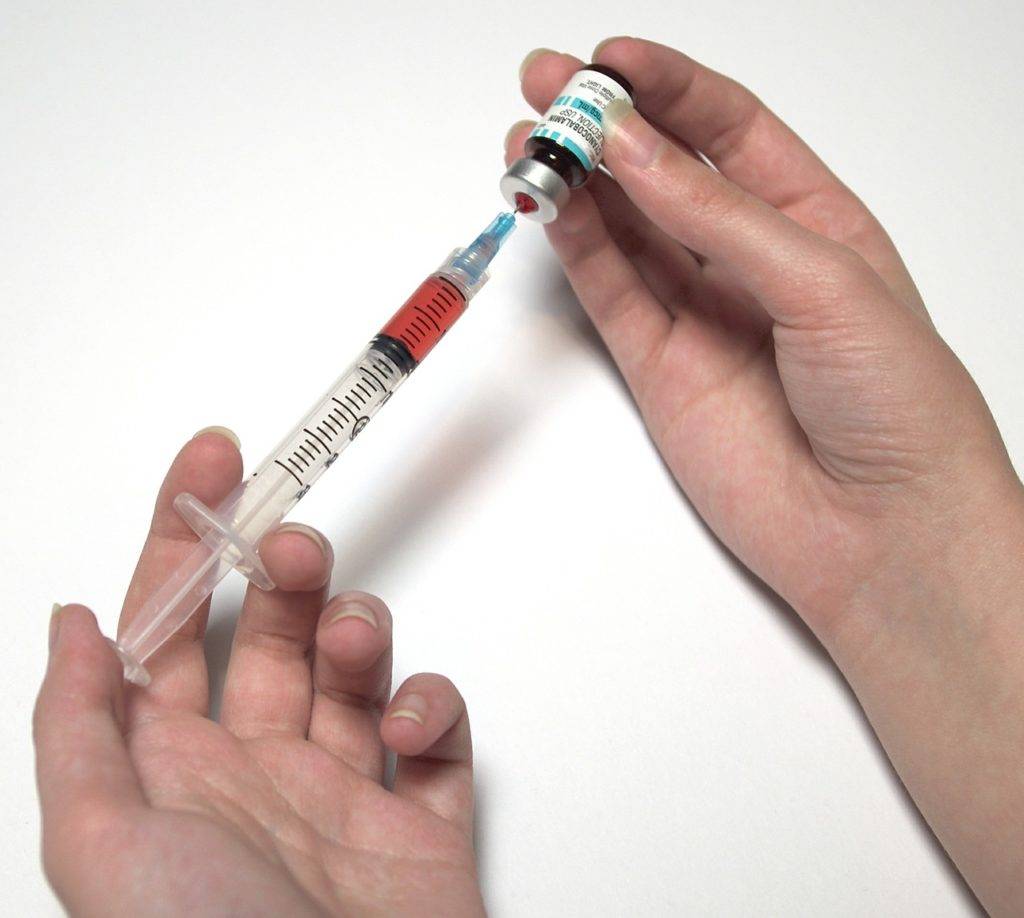Table of Contents
Vaccines remain crucial, regardless of what the media says. The anti-vaccination propaganda fueled in the mainstream and social media relegated the relevance of childhood vaccinations to the background.
As a result, providing parents with information on the significance of childhood immunization is becoming increasingly difficult.
Many parents are confused even with the information received on pro-vaccination claims because of the anti-vaccine claims, which reduce and undermine their confidence in the system (Luthy, Beckstrand, & Callister, 2010).
These anti-vaccine campaigns succeeded in influencing parents’ minds, making them feel guilty when they allow their children to receive vaccines. This developing trend has caused great concern about childhood immunization.

Science and research have much to say about vaccines. Vaccines are safe and effective for babies and children. The benefits outweigh the potential risks. And the risks are minimal.
Parents are in Charge: Get Informed
Parents must understand that infectious diseases potentially threaten children’s lives and well-being, and immunization through vaccines has been very successful in health promotion and illness prevention.
Propagandists for anti-vaccines have somehow succeeded in convincing parents of the dark side of vaccination. Parents believe that there are risks involved in taking vaccines, even greater than the diseases they’re supposed to protect against.
One misconception that has dominated among parents is that vaccination causes autism. On the contrary, the Institute of Medicine released at least eight reviews proving no relationship between vaccination and autism (Luthy, Beckstrand, & Callister, 2010).
Autism is a developmental disorder manifesting in a child’s social interaction and communication. Typically, the diagnosis occurs when the child reaches two to three years old (Luthy, Beckstrand, & Callister, 2010).
However, there are instances when parents and doctors notice the early signs of developmental delay during the child’s first vaccines.
Due to this, it has fueled some misconceptions, as the anti-vaccine literature tries to link vaccination timing with diagnosis timing. As such, parents should be vigilant in making informed decisions about the health of their children.
In this perspective, we at Omega Pediatrics play a crucial role in health education. It’s one of our goals to educate parents of our young patients about the benefits of vaccination and the importance of preventive care in children’s healthcare.
Why Vaccinate My Child?
Mothers, while you carry your baby in your womb for approximately 40 weeks, your little one already enjoys a layer of protection. At the moment of childbirth, such protection is instantly gone.
The baby will then be exposed to a world full of bacteria and hazardous organisms that can potentially cause harm. This is where immunizations come in.
Vaccines for your child are important for several reasons:
Disease Protection
Vaccines help children’s immune systems fight germs, protecting them from potentially life-threatening diseases.
Immunization is vital to your child, especially during the first two years of life (Luthy, Beckstrand, & Callister, 2010), and for older children since immunity continues to evolve.
Prevention is better than treatment. Hence, vaccination can provide the needed protection against diseases. For example, vaccines against hepatitis B, chickenpox, or varicella give protection from developing liver cancer.
2. Prevent the spread of illnesses.
A vaccinated child can potentially stop the spread of diseases and illnesses to other individuals in the community. Thus, this makes them unlikely to be carriers.
3. Easy and effective.
The availability and accessibility of vaccines prove that administering the shots by your child’s healthcare provider is no excuse for parents. Moreover, insurance typically covers vaccines.
4. Herd immunity.
Getting a large number of children vaccinated is one of the major public health concerns. We further explain this topic of herd immunity in the succeeding section.
5. Protection of future generations.
Vaccination is a never-ending endeavor that pervades across generations. If the program’s goals have succeeded among the current generation, it will ultimately have a positive chain effect on the succeeding generations.
The Health of the Community is in Your Hands
The community’s overall health begins by vaccinating every child. Vaccination not only protects children but also the whole community as well. Individuals and communities are protected from life-threatening illnesses, such as smallpox and polio.
In this case, herd immunity happens. Even though only a portion of the population is vaccinated, the remarkable effect is that diseases will unlikely spread, even among individuals who can’t be vaccinated.

Herd immunity is especially beneficial to individuals who can’t receive vaccine shots, such as pregnant women and immune-compromised individuals.
Immunization is continuous. The administration of vaccines is a series of doses and booster shots. These are needed to maintain immunity against certain diseases.
Therefore, parents must closely work with their healthcare providers to ensure their child receives all the recommended vaccinations at the correct time.
What are the Types of Vaccines for Children?
Diphtheria is contracted through breathing contaminated air or a droplet infection from an infected person, causing inflammation of the pharyngeal passage and neck glands. Secondary effects on the heart muscles can lead to heart failure and death.
With treatment, death in diphtheria is about 10%, according to the CDC, while it approaches 50% if untreated. No parent wishes this for their child.
The Pertussis DTaP vaccine protects against pertussis or whooping cough, which causes a severe cough, runny nose, and a pause in infant breathing that could be fatal.
Tetanus, the other agent that the DTaP vaccine protects against, is also called lockjaw because of the severe spasms of the jaw muscles seen in affected individuals.
Exposure through cuts in the skin can lead to neck stiffness, difficulty swallowing, muscle spasms, fever, broken bones (the bones break since the muscles contract so forcefully that they break the patient’s bones), breathing difficulty, and even death.
Tetanus is cruel because the patient is conscious of the illness. It doesn’t cause loss of consciousness, so the affected patient goes through the agony alert but suffers spasms continually at any form of stimuli, from noise to sound to vibrations.
Tetanus also leads to death, usually by metabolic acidosis or aspiration pneumonia from vomiting the spasms may have caused.
- The polio IPV vaccine protects against polio.

Polio leads to paralysis and death if the paralysis involves the respiratory muscles. Due to this, the Iron Lung was invented to help children breathe during such paralysis. This was considered a significant health breakthrough until the vaccine was developed.
Now, those Iron Lung machines are found in the museum, and nobody wants to be in these machines for months to stay alive because of polio.
- The pneumococcal PCV vaccine protects against pneumococcal pneumonia, an infection of the lungs that threatens life in our youngest and the elderly.
Though antibiotics can treat pneumonia, such treatment can have unfavorable effects on individuals with developing immune systems.
The CDC reports that “since the seven serotypes included in the vaccine were routinely used in childhood vaccination programs, rates of invasive pneumococcal disease have declined by 99%.”
- The HepA vaccine protects against hepatitis A. It is contracted through direct contact with contaminated food or water and can lead to liver failure.
- The Influenza Flu vaccine protects against influenza infection. It is contracted by breathing infected air, leading to extreme fatigue and causing death in children.
- The MMR vaccine protects against measles, mumps, and rubella. Measles is contracted by inhaling contaminated air or droplet infection from an infected person.
Measles has severe respiratory and neurological effects that cause significant immediate and long-term damage to the affected individual.
It causes a type of giant cell pneumonia that’s difficult to treat because of its viral causative agent and causes severe inflammation. Invariably, the patients develop complications with bacterial pneumonia and suffer hypoxemia for prolonged periods.
The immunity of affected individuals is often diminished, making them more challenging to treat and making recovery a painful and arduous process for survivors.
Other components of the MMR vaccine protect against mumps and rubella infections. Mumps are spread through droplet infection and direct contact. The symptoms are swollen salivary glands and general muscle pain.
On the other hand, rubella may cause minimal harm to the adult but is devastating to the unborn child. If a pregnant mother with no immunity contracts rubella, it could damage the unborn baby’s brain, heart, eyes, and kidneys.
If the mother doesn’t have a stillbirth or mid-trimester abortion, the offspring, often severely deformed, suffer for the rest of their lives. And these unfortunate events are something you wouldn’t want to happen.
Vaccines are administered to children early, that is, during the first few years of life. This is to help build up their immunity. thus protecting them from diseases. For parents, it’s very important to keep a record of your child’s vaccinations for proper monitoring.
Get Your Child Vaccinated by Omega Pediatrics
This article serves as a wake-up call to parents who allow conspiracy theorists regarding vaccinations and immunizations to get the better of them. These vaccines are needed and do a great job of keeping us alive and healthy.
While we know there has been an increase in autism diagnoses in the last 15 to 20 years, we must not forget that correlation is not causation. As a parent, collaborate with your pediatrician and stand on the same side as your children.
These childhood diseases can be devastating. The eradication of childhood infectious diseases is primarily hinged on their effective prevention.
Therefore, it’s essential to provide parents with accurate information and address their concerns to ensure that they make informed decisions. By doing so, we can protect our children and communities from preventable diseases and promote overall public health.
It’s highly recommended to vaccinate your child without contraindication and save the nation from the pain of future epidemics like what people experienced with influenza at the turn of the last century.
Immunization remains crucial, and parents must be encouraged to vaccinate their children. Reach out to Omega Pediatrics; we provide you with all the information you need to know about your children’s immunization.
FAQ
Why are vaccines important for children?
Vaccines protect children from potentially life-threatening diseases by helping their immune systems fight germs. They also prevent the spread of illnesses, are easy to administer, contribute to herd immunity, and protect future generations.
What is herd immunity and why is it important?
Herd immunity occurs when a large portion of a community is vaccinated, making it unlikely for diseases to spread, even among individuals who can’t be vaccinated. It protects vulnerable populations such as pregnant women and those with compromised immune systems.
What types of diseases do vaccines protect against?
Vaccines protect against a range of diseases including diphtheria, pertussis (whooping cough), tetanus, polio, pneumococcal pneumonia, hepatitis A, influenza (flu), measles, mumps, rubella, and others. Each vaccine targets specific pathogens to prevent illness.
What misconceptions exist about vaccines?
One common misconception is the belief that vaccines cause autism, despite scientific evidence disproving this claim. Other misconceptions relate to the safety and necessity of vaccines, influenced by misinformation spread by anti-vaccine propaganda.
How can parents ensure their child’s vaccination schedule is up-to-date?
Parents should work closely with their healthcare providers to ensure their child receives all recommended vaccinations at the correct time. Keeping a record of vaccinations and addressing any concerns with healthcare professionals can help ensure children are adequately protected.



